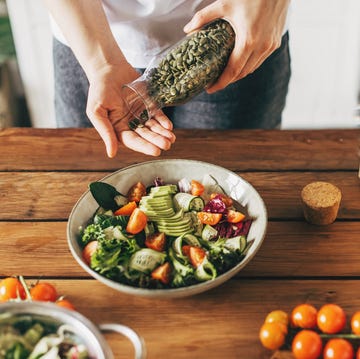14 Pantry Superfoods You Need to Stock Up On Now
Fill your pantry with healthy shelf-stable foods so you always have something nutritious on hand.

We've been independently researching and testing products for over 120 years. If you buy through our links, we may earn a commission. Learn more about our review process.
There’s no scientific definition for “superfood,” but it’s generally considered to be food that’s high in beneficial dietary components, such as antioxidants, omega-3 fatty acids or fiber. While we’ve all heard that fresh foods such as berries and greens are nutritional powerhouses, there are plenty of pantry superfoods that can boost the nutrition of any meal.
One of the biggest benefits of stocking your pantry with superfoods is that shelf-stable items last longer than fresh foods — and you don’t have to run out to the grocery store every time you need to whip up a meal. “These are all foods that are very nutritious and hold well,” says Jason Ewoldt, M.S., R.D.N., a nutrition expert at Mayo Clinic. Plus, pantry superfoods don’t take up valuable freezer space if you’re trying to keep healthy foods on hand but don’t have lots of cold storage space.
Below are the best pantry superfoods to stock up on now.
Rachel Lustgarten (she/her), M.S., R.D., C.D.N., is a registered dietitian in clinical practice in New York City. Her primary area of focus is medical nutrition therapy and weight control. Rachel’s passion is sharing her knowledge and expertise of food and nutrition’s role in overall health and wellness. She co-hosts the weekly “Primary Care Medicine” show on SiriusXM Doctor Radio, interviewing expert guests and fielding listener calls and questions about hot topics in health and nutrition. She served as a clinical dietitian at the Comprehensive Weight Control Center at Weill Cornell Medicine and served as an Advisor to the Weill Cornell’s Women’s Nutrition Connection monthly newsletter for 10 years. Rachel received a Master’s degree in Clinical Nutrition from New York University, graduating with honors.


But Wait, Are Sardines Actually Healthy?

Is Rotisserie Chicken Healthy?

What Happened When I Went 2 Weeks Without Meat

These Vegetables Are Surprisingly High In Vitamin C





















